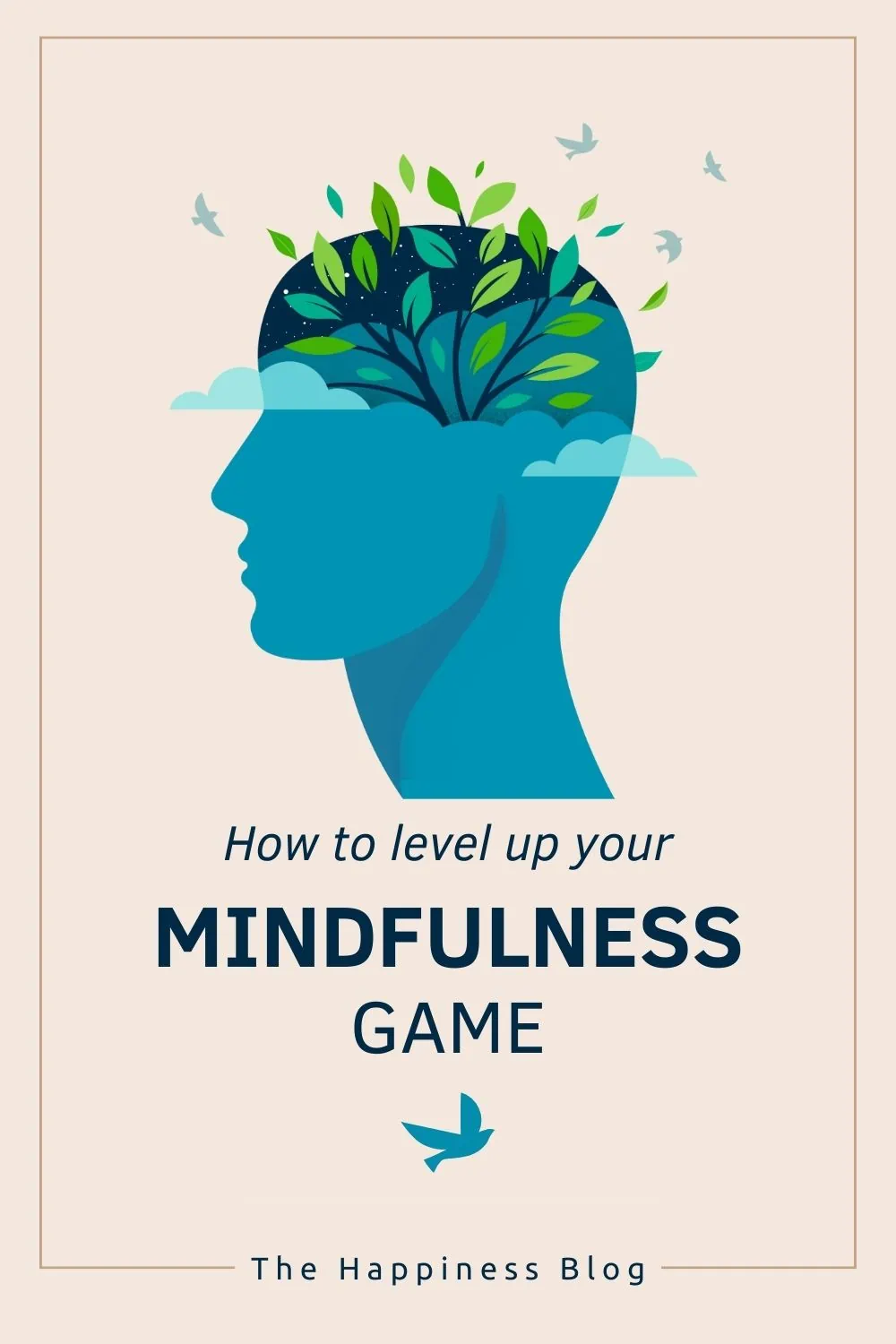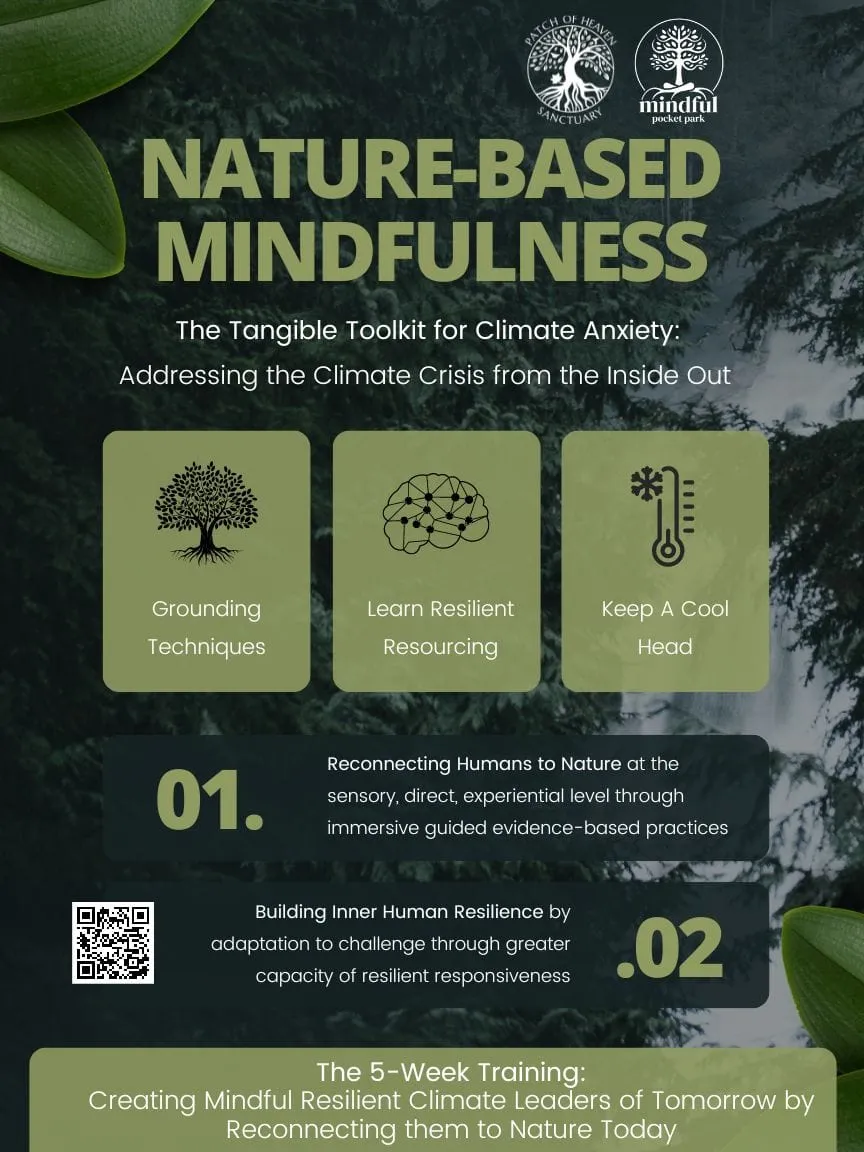Today's Thursday • 8 mins read
— By Dr. Sandip Roy.
If you already practice mindfulness meditation and want to take it to the next level, I can suggest some great options.
“Mindfulness means maintaining a moment-by-moment awareness of our thoughts, feelings, bodily sensations, and surrounding environment, through a gentle, nurturing lens.”
— Greater Good Magazine
Mindfulness practice can reduce stress and anxiety, increase happiness and well-being, and enhance resilience and pain tolerance.
This 2023 study found that 8 weeks of mindfulness meditation training:
- reduced self-serving dishonest behavior
- increased self-awareness, bodily and emotional state
- enhanced non-reactivity to distressing thoughts and emotions
The Raisin Mindfulness Exercise
Raisin exercise as a mindfulness practice was first described by Jon Kabat-Zinn. The idea is to engage all five senses in observing a single raisin in detail.
Take a raisin, or any other small edible item like a grain of rice.
- First, hold the raisin in your hand and examine it with your eyes. Notice its shape, size, color, and texture.
- Next, bring the raisin up to your nose and smell it for a few moments. Notice the aromas of the raisin.
- Now, slowly place the raisin in your mouth, but don’t chew it yet. Move it around your mouth. Notice the sensations on your tongue and the insides of your mouth.
- Start chewing the raisin slowly and mindfully. Pay attention to the sensations of each chew. Notice its texture and flavor. Even notice the sound of your chewing it.
- When you are finished chewing, swallow the crushed raisin and notice how it feels as it goes down your throat.
How To Do Body Scan Mindfulness?
You can do the body scan mindfulness meditation for 10–20 minutes. Here’s how:
- Find a comfortable position where you will not be disturbed.
- Sit in a chair or lie down on your back. Close your eyes and take a few deep breaths.
- Bring your awareness to your feet. Notice the sensations of your feet on the ground. Pay attention to any feelings of warmth, coolness, pressure, or tingling.
- Now, slowly bring your awareness up your body, one part at a time. Notice the sensations in your legs, hips, stomach, chest, back, arms, neck, and head.
- If you notice any areas of tension or discomfort, try to relax those areas. You can do this by taking a few deep breaths or by gently tightening and relaxing the muscles in that area.
- Continue to scan your body until you reach the top of your head. Then, bring your awareness back to your breath.
- Do not judge yourself if your mind wanders. Gently bring it back to your breath or the sensations of your body.
How To Level Up Your Mindfulness Practice
If you know a bit about mindfulness and want to start practicing it seriously, or have been practicing it on and off and want to take it to the next level, here are 3 great ways:
1. Mindfulness Retreat
You could spend a few days at a mindfulness retreat.
Staying at these retreats lets you deepen your understanding and intensify your mindfulness practice. They can be from one day to several days.
Most retreats are suitable for both beginners and advanced mindfulness practitioners. Suzanne Jewell’s Mindful Pocket Park offers a unique and immersive sensory experience, helping you reconnect with the natural world, recharge your mind, and elevate your awareness.
2. MBSR Training
Those who wish to foray into helping clients with stress management, anxiety reduction, emotional regulation, better sleep, and overall well-being, may choose a certified Mindfulness-Based Stress Reduction (MBSR) program.
The Center for Mindfulness at the University of Massachusetts Medical School offers accredited MBSR programs. All Center for Mindfulness courses are offered online, in a live Zoom meeting.
Check their course schedules here.

3. Mindfulness X
For people who already lead mindfulness training programs, there is Positive Psychology Mindfulness X — an all-in-one resource for mindfulness practitioners and trainers that can help someone develop a mindfulness practice.
It was created by the psychologist and researcher Dr. Hugo Alberts, who says:
“Mindfulness X is for anyone who wants to learn about, use or teach mindfulness in their personal or professional life. It’s popular with coaches, trainers, teachers, HR managers, organizational development specialists, consultants, and leadership specialists.”

5 Proper Ways To Start Self-Directed Mindfulness Practice
Mindfulness can be guided by a mindfulness trainer or be self-directed.
These are some self-directed ways:
- Mindfulness meditation. Sitting quietly and trying to empty your mind of thoughts is what often comes to mind when you hear the word “meditation.” But mindfulness meditation is not that. It involves noticing your thoughts without judging or getting carried away with them.
- Mindful breathing is when you pay close attention to your breath, focusing on its rhythm and sensation, which helps anchor your awareness to the present moment.
- Yoga is often considered a form of mindfulness practice as it involves paying attention to the breath, body sensations, and movements while practicing various poses. Its focus on the present moment helps cultivate mindfulness, awareness, and relaxation.
- Body scan is another mindfulness practice. It involves systematically focusing attention on different parts of the body, usually starting from the toes and moving upwards to the head. It helps you become more aware of your physical sensations and areas of discomfort, so you can focus on the sequential relaxation of those parts.
- Mindful eating is another mindfulness practice.
Get this printable guide: Mindfulness In 7 Steps.
Two main trainer-directed methods are Mindfulness-Based Stress Reduction (MBSR) and Mindfulness-Based Cognitive Therapy (MBCT), both are structured, time-limited interventions. However, the lessons can help start long-term mindfulness practices after completing these.

Brief History of Mindfulness Meditation
Mindfulness is an ancient tradition, with origins in Buddhism, Christianity, Hinduism, Islam, and Judaism (Trousselard et al., 2014).
The earliest mindfulness practices were generally limited to religious and spiritual institutions in the East.
In the 1970s, two events helped bring mindfulness to the United States in its current context:
- The founding of the Insight Meditation Society (IMS) by Joseph Goldstein, Jack Kornfield, and Sharon Salzberg (author of Love Your Enemies: How To Break the Anger Habit & Be A Whole Lot Happier), and
- The development of mindfulness-based stress reduction (MBSR) by Jon Kabat-Zinn.
Goldstein, Kornfield, Salzberg, and Kabat-Zinn were influenced by Theravada Buddhist traditions and Buddhist spiritual leaders. But they studied the benefits of mindfulness practice separated from religiosity and spiritualism. This led to its acceptance as a secular practice in the United States and the rest of the West.
The development of MBSR “integrated secularized mindfulness-based practices into traditional Western medical settings” (Wilson et al., 2017). This further stripped mindfulness of its religious connotations in the West.
Today, people all over the world study mindfulness practices for managing anxiety and stress, positive psychology, pain, depression, and other mental health issues.
Mindfulness Benefits
Mindfulness can offer many physical and psychological benefits for people with/without health issues.
Mindfulness-based interventions (MBIs) can help manage addictive behaviors, anxiety, depression, OCD, pain, and stress.
Here are research-based facts:
- MBIs that promote a long-term mindfulness practice are the most effective for reducing addictive behaviors (Wilson et al., 2017).
- MBSR and MBCT have been shown to consistently reduce anxiety and depression (Hofmann & Gomez, 2017; Key et al., 2017).
- MBCT has also been shown to be effective in reducing symptoms of OCD (Key et al., 2017).
- Mindfulness can increase quality of life, and lower levels of anxiety and depression in patients with IBD (Hood & Jedel, 2017).
- MBSR can be effective in reducing stress levels and improving quality of life in patients with lung cancer (Schellekens et al., 2017).
- Mindfulness meditation can reduce depression symptoms and improve the quality of life in women with chronic pain (Ball et al., 2017).
- A 2015 study found that as employees became more mindful, their levels of psychological distress decreased (Grégoire & Lachance, 2015).
- MBSR can also increase relationship satisfaction for both people in the relationship (Khaddouma et al., 2017).
Final Words
If someone asks what mindfulness is, this is what you can say:
Mindfulness is purposefully and non-judgmentally focusing on the present moment’s thoughts, feelings, bodily sensations, and surrounding environment.
While some people may see mindfulness as a “spiritual” fad, you could tell them that it has been studied in formal scientific settings for a few decades now. There is clear evidence that it can improve our lives.
Mindfulness is accessible to anyone who needs it. This powerful yet simple practice is suited for anyone, regardless of age, background, or circumstances.
√ Also Read: 15-Minute Mindfulness Meditation Script (Free PDF)
√ Please spread the word if you found this helpful.
» You deserve happiness! Choosing therapy could be your best decision.
...
• Disclosure: Buying via our links earns us a small commission.

